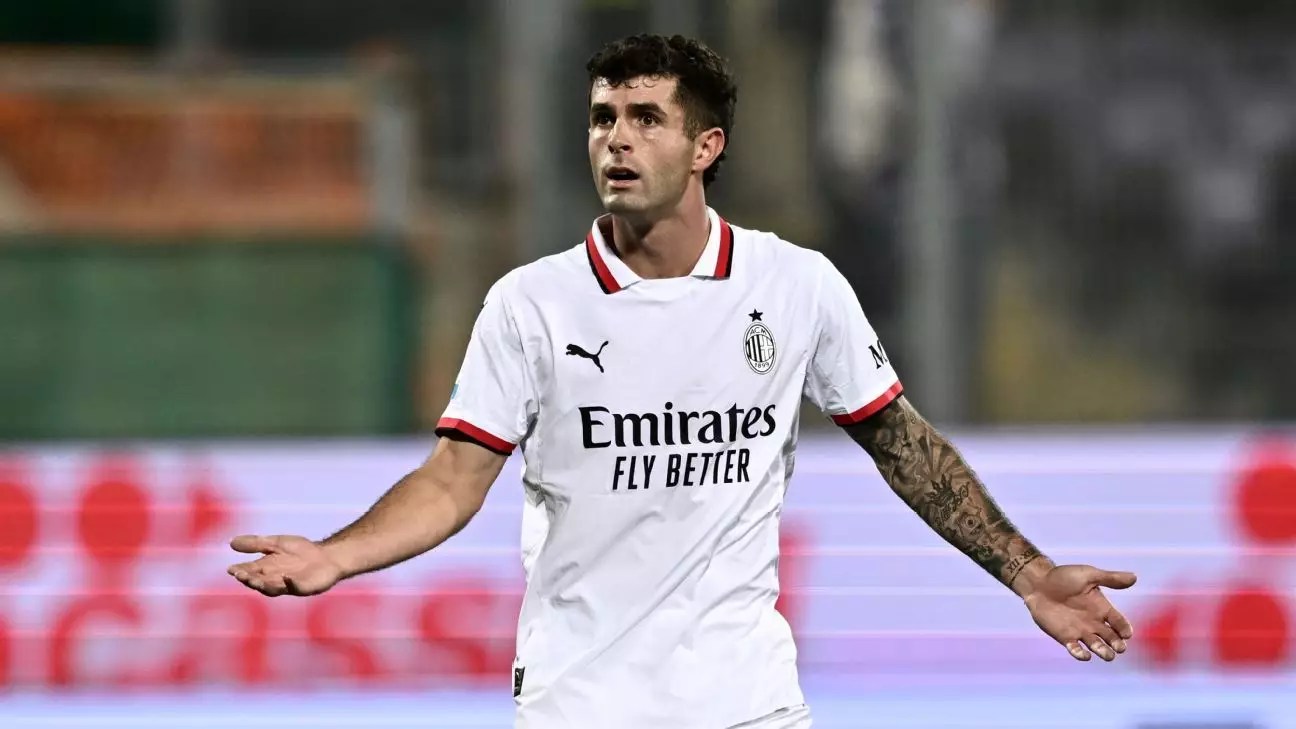In a perplexing turn of events during AC Milan’s recent clash against Fiorentina, coach Paulo Fonseca found himself grappling with questions about team dynamics, particularly regarding penalties. Despite being the designated penalty taker, Christian Pulisic’s absence from the spot for two critical penalty opportunities left both the coach and fans scratching their heads. The situation escalated as teammates Theo Hernández and Tammy Abraham took the responsibility, only for both attempts to be thwarted by Fiorentina’s new goalkeeper, David de Gea. This unexpected shift sparked a flurry of inquiries regarding the players’ decision-making in high-pressure situations, and it casts a shadow over team cohesion.
Fonseca’s palpable frustration was evident in the post-match discussion. He firmly stated, “Our designated penalty taker is Pulisic,” indicating a clear expectation that was abruptly unmet. The incident raises broader questions about leadership and communication within the squad. Players must have a collective understanding of roles, especially in crucial match moments. The decision by Hernández and Abraham to step up instead of Pulisic could suggest a breakdown in team hierarchy or perhaps a misinterpretation of Pulisic’s condition during the match. The fact he had managed a flexor issue earlier in the week might have played a role in this pandemonium, yet it was not communicated or perceived adequately on the pitch.
Despite the penalty controversy, Pulisic did manage to net an equalizer in the second half, marking his sixth goal of the season. This highlights the duality of his contribution to AC Milan; while he displayed individual brilliance, the inconsistencies with decision-making within the team pose significant concerns. Following his goal, Pulisic’s substitution in the 81st minute for Samuel Chukwueze raised further questions about his fitness and tactical importance as the match progressed. Fonseca’s decision to replace him may have been influenced by concerns over his ongoing fitness issues, illustrating another layer of complexity in game management.
Adding fuel to the fire, Fonseca’s critique of the officiating encapsulated a broader conversation about the nature of modern football and refereeing standards. Calling it “not football,” he pointed out the intricacies of contact and the implications of awarding penalties based on minimal engagements. This sentiment resonates with many players and coaches who feel that the game has shifted away from its physical roots to a more subjective interpretation of fouls and penalties. Amid the numerous contentious calls throughout the match, Fonseca acknowledged that while the penalties were pivotal in the outcome, his team must take responsibility for missed opportunities.
The aftermath of this defeat not only halted Milan’s three-match winning streak but also positioned them sixth in the Serie A standings, trailing leaders Napoli by five points. This emerging gap underscores the urgency for AC Milan to address internal issues and recalibrate both strategical and emotional aspects of their play. As they head into an international break, the Rossoneri must focus on rebuilding trust and reinforcing the stability of their game plan to ensure they can reclaim their standing in the league. In this climate of scrutiny, every decision—from penalty takers to substitutions—will carry significant weight moving forward.


Leave a Reply